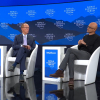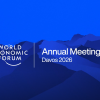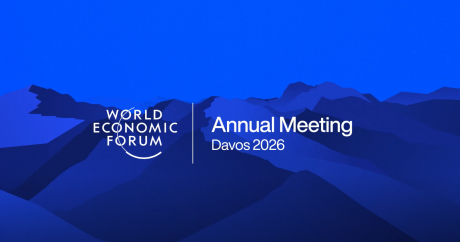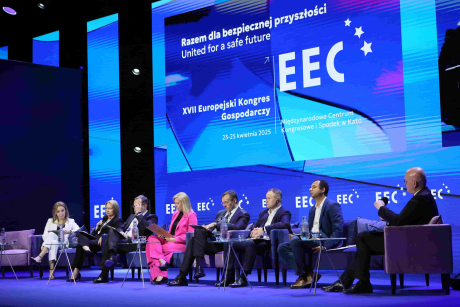Key Highlights from GITEX Berlin 2025: How AI, Quantum Computing, and Startups Are Driving Europe’s Future
In May 2025, GITEX EUROPE x Ai Everything brought together innovators, industry leaders, and startups at Messe Berlin for the region’s largest tech, startup, and digital investment event. Held from 21-23 May, the event was organized by KAOUN International and hosted in collaboration with the Berlin Senate Department for Economics, Energy and Public Enterprises, Germany’s Federal Ministry for Economic Affairs and Climate Action, Berlin Partner for Business and Technology, and the European Innovation Council (EIC).
As part of the GITEX global network of tech and startup events, the Berlin edition connected Europe’s digital ecosystem to key markets worldwide, reinforcing its place alongside events in Germany, Morocco, Nigeria, Singapore, Thailand, UAE, and Vietnam.
The highly anticipated inaugural edition welcomed over 1,400 big tech enterprises, startups, and SMEs, including platinum sponsors AWS and IBM, alongside Cisco, Cloudflare, Dell, Fortinet, Lenovo, NTT, Nutanix, Nvidia, Opswat, and SAP, among others. Industry leaders examined the key imperatives shaping Europe’s digital future, addressing innovation, investment, and emerging technologies.
GITEX EUROPE x Ai Everything also brought together a diverse global tech ecosystem in Germany—the world’s third-largest economy—featuring a distinguished lineup of companies from 100+ countries and 35 European states. Tech pavilions showcased groundbreaking advancements from India, Italy, Morocco, the Netherlands, Poland, Serbia, South Korea, the UK, UAE, and beyond, fostering cross-border collaboration and accelerating digital transformation.
From AI-driven transformation to the rising impact of quantum computing, discover the key highlights and insights from one of the most anticipated tech gatherings of the year.

SHOW OVERVIEW
1,400+ Big tech enterprises, SMEs, and award-winning startups
500+ International speakers
600+ Global investors
100+ Participating countries
200+ Hours of content
32 Unicorns
7 Key themes (Artificial intelligence, SMEs, Cybersecurity, Quantum Computing, Global Cities, Green Tech, and Startups & Investments)
Co-located events: Ai Everything, GITEX SMEDEX; GITEX Cyber Valley, GITEX Quantum Expo (GQX); GITEX Green Impact; North Star Europe; GITEX ScaleX
A New Europe Is Rising
Europe is on the cusp of a new momentum, spurred by strategic policy resets, an urgent push for digital sovereignty, and the landmark €200B Invest AI initiative.
It’s a moment of acceleration, recalibration, and reinvention - and the inaugural GITEX EUROPE x Ai Everything landecd at the centre of it all. A new mission emerges from Germany. Amid the shifting power plays, Germany is stepping forward with an unprecedented €500bn infrastructure fund featuring digitalization as a key strategic maneuver.
GITEX EUROPE x Ai Everything was where these bold new investments & economic imperatives align and advance. Uniting global digital leadership in a way that no other show has achieved in its debut year - from big tech, startups, and investors to visionary governments, corporate leaders, and researchers, together, igniting a new era of European sovereignty and global scalability.
Powering the next continental shifts AI-first economies. Quantum acceleration. Cyber resilience. Policy vs pace. Green innovation for climate leadership. SME expansion. Accelerating startups, from seed to a unicorn. The show delivered on these critical themes with a mission to open new access to markets, capital and talents – into, across, and beyond Europe. At GITEX it was also highlighted that the EU mobilized €200bn to accelerate European AI innovation.
RIGHT PLACE. RIGHT TIME.
GITEX spured the making of a faster, bolder and collaborative new digital Europe.
Trixie LohMirmand, Organiser of GITEX globally, Executive Vice President Dubai World Trade Centre, CEO KAOUN INTERNATIONAL highlighted “That Europe shall be forged in crises” as predicted by Jean Monnet, the resonance of this adage is as poignant now as almost six decades ago. Never has there been a more economically uncertain and technologically disruptive crossroad in recent years for Europe than now. The EU, world’s largest trading bloc, is reverberating with a renewed impetus to embrace unprecedented changes, urgency to unify and re-imagine status quo, re-shaping its roadmap and moving faster to deliver a refreshed narrative for a more competitive European economy. According to Trixie Lohmirmand, the first edition of GITEX EUROPE in May 2025, set in the most dynamic, economically and culturally open top tech hub of Berlin, and the third largest economy of the world, was the barometer of a shifting Europe. Over 2,500 participating tech, investment and startup firms engaged with government officials and tech executives from over 100 countries to forge consensus in new partnerships and business outcomes to fuel a more agile, business friendly yet responsible global digital system.
Key Themes at GITEX Berlin 2025
Artificial Intelligence
At GITEX in Berlin, AI emerged as a transformative force, driving discussions on its impact across industries, economies, and global regulatory landscapes. Experts explored the growing role of open-source AI, digital sovereignty, and ethical development, emphasizing the need for transparent and equitable AI frameworks.
With generative AI projected to inject $575.1 billion into Europe’s economy by 2030, the real question is whether Europe can scale fast enough to lead in the global AI race. Leaders debated how AI can fuel SME growth, enhance automation, and redefine business operations, ensuring Europe remains competitive in a hyperconnected world.
Key topics included the advancement of AI-powered cybersecurity, tackling AI-driven threats, and securing cloud infrastructure as breaches and ransomware attacks surge. Moreover, discussions at GITEX highlighted the alarming rise of AI-driven cyber threats, including deepfake manipulation, automated phishing schemes, and AI-powered malware. Experts examined the evolving risks posed by malicious actors who harness AI to bypass security protocols, spread misinformation, and compromise digital identities.
Despite these threats, AI is also revolutionizing cybersecurity operations. Industry leaders explored how AI-driven agents are reshaping defense strategies, enabling autonomous threat detection, real-time risk mitigation, and proactive security enforcement. It was also highlighted that AI Agents integrate into existing environments, learn continuously from data, and collaborate with human analysts to deliver faster, smarter, and more resilient security operations in an AI-powered world.
The following topics on AI were raised at GITEX in Berlin:
- AI Made in Europe - Powerhouse or Pipeline to the US?
- Agentic AI: Powering Progress, Demanding Control
- Building the Brain: Multimodal & Open-Source AI
- Cracking The Code Of AI at Scale
- EU AI Act: first regulation on artificial intelligence
Quantum Technologies
At GITEX Berlin 2025, quantum technologies took center stage, showcasing their potential to revolutionize industries from computing to healthcare and beyond. With Europe investing over €8 billion in quantum research since 2018, the event highlighted the continent’s ambition to lead in quantum innovation and commercialization.
As 2025 being the International Year of Quantum Science & Technology, the conference’s spotlight was focused on the question how to ramp up Europe’s strategic venture in quantum technology. While quantum tech is accelerating, some say it is happening too fast, others say it’s plateauing. As the power race intensifies, the real question is: How practical is quantum today? With access limited to a few nations and corporations, will it deepen the digital divide? The conference explored these challenges, focusing on equitable access, ethical governance, and global collaboration to shape.
The GITEX Quantum Expo provided a dedicated space for researchers, startups, and industry leaders to explore the latest advancements in quantum computing, semiconductors, and AI-powered quantum applications. Experts discussed how Europe’s quantum market is projected to reach €2.5 billion by 2025, emphasizing the need for strategic investments and policy frameworks to accelerate growth.
Beyond theoretical research, GITEX Berlin 2025 focused on real-world applications of quantum computing, including optimization problems in finance, logistics, and drug discovery. Companies showcased how quantum advancements are moving from research labs to profitable commercial solutions. With Europe’s quantum ecosystem rapidly evolving, GITEX Berlin 2025 reinforced the importance of investment, innovation, and collaboration in shaping the future of quantum technologies.
The key topics that were raised:
- Quantum: Hype, Reality and Who Gets Left Behind
- Quantum Ethics: Navigating a New Frontier of Risk
- Why the QPU is the Next Frontier After the GPU
- Europe’s Next Quantum Move
At Gitex in Berlin the world's leading supercomputing force represented companies: IBM, Quantum Business Network (QBN), the European Organization for Nuclear Research (CERN), The Quantum Insider, Technische Universität Berlin, and many more.
IBM, the global tech leader building the largest quantum computer presented quantum's ultimate potential and impact.
Cybersecurity
At GITEX Berlin 2025, cybersecurity took center stage as industry leaders, policymakers, and tech innovators tackled the growing threats posed by AI-driven cyberattacks, deepfake manipulation, and state-sponsored hacking. With cyber threats evolving at an unprecedented pace, experts emphasized the urgent need for stronger digital defenses, AI-powered security solutions, and regulatory frameworks to safeguard Europe’s digital infrastructure.
One of the most pressing concerns at GITEX was the increasing use of AI by cybercriminals to automate attacks, bypass security protocols, and create highly sophisticated phishing schemes.
Experts warned that AI-powered deepfakes and identity fraud are becoming more prevalent, making it harder to distinguish between legitimate and malicious digital interactions.
The event featured GITEX Cyber Valley, a dedicated cybersecurity arena where global tech enterprises, national security agencies, and ethical hackers showcased cutting-edge solutions. Leading cybersecurity firms, including Fortinet, CrowdStrike, Kaspersky, KnowBe4, Proofpoint, Dell, and NTT, presented innovations in cloud security, endpoint protection, and AI-driven threat detection.
European regulators and cybersecurity experts stressed the importance of digital sovereignty, ensuring that Europe remains in control of its cybersecurity policies and infrastructure. Discussions highlighted the EU’s Cyber Resilience Act, which aims to tighten security standards for connected devices and digital infrastructure.
Key issues that were addressed include:
- Great EU Debate & How It Impacts Cybersecurity
- Global Sanctions, Operational Resilience; DORA
- NIS 1 to NIS 2: Securing SMEs, 99% of EU Businesses
- OT Security AI & ML In Critical Networks
At Gitex, cybersecurity took center stage as experts addressed the evolving threats in the digital world. With the theme "WHERE HACKERS ARE MASTERMINDS; NO ONE IS TRULY SAFE", Live Hack demos; talks by renowned crime; intelligence analyst, behavioral & cyber profiling expert, head of adversarial attack simulations, UK covert police officer to offensive cybersecurity specialist, reveal a hacker's mentality, human psychology; the art of manipulation, uncovered the dark world of A; Deepfakes, demonstrated use of OSINT (Open Source Intelligence) to uncover threats, track threat actors & how hackers exploit everything from art generators to autonomous vehicles.
Green Tech
Balancing Act: Technology, Investment; Energy Transition
Europe is proving that climate leadership and economic strength go hand in hand, with renewables now powering 50% of its grid. As the race to net zero accelerates, GITEX in Berlin united leading environmental stakeholders & tech companies to scale breakthroughs in green hydrogen, bioenergy, and storage, tackling the €350bn funding gap and securing clean tech as Europe’s competitive edge.
The Green Digital Action Summit, in partnership with GITEX EUROPE, hosted by ITU and the German Environment Agency (UBA), drove climate action through digital innovation. Building on the COP29 Green Digital Action Declaration, it tackled key green tech and policy priorities – from the intricacies of AI and the adoption of green technical standards to the principles of a circular economy and the pivotal role of emergency telecommunications. Companies reinforced their sustainability missions by signing green pledges at the event. Together, ensuring commitment to our collective environmental stewardship ahead of COP30 in Brazil.
At Gitex, Sustainability Driven Investors (SDI) played a crucial role in advancing ESG-driven innovation, managing over €1 billion in funds. Their commitment to responsible investment fosters sustainable growth among forward-thinking enterprises, ensuring that technological advancements align with ethical and environmental priorities.
Key Sustainability Driven Investors included: Siemens Energy, BXVentures, Dipalo Ventures, Future Energy VentureS, Metta.
SMEs & Startups
In Berlin, the GITEX SME Digital Economy Expo (SMEDEX) was held with the support of the European Innovation Council, EISMEA, and the ICC Digital Standards Initiative, fostering discussions on innovation, digital transformation, and the future of SMEs in the European economy.
At Gitex in Berlin, SMEs took center stage with the main theme focused on Fuelling SMEs – The Engine Of The European Economy, highlighting the crucial role small and medium-sized enterprises play in driving innovation, job creation, and economic resilience in Europe. Although SMEs make up 99% of the EU’s businesses, they face barriers in scaling globally. SMEDEX connected them with the most strategic investors, provided insights; and supported them with innovative ideas. Industry leaders, policymakers, and entrepreneurs explored strategies to empower SMEs through digital transformation, financial support, and regulatory frameworks that foster sustainable growth in an increasingly competitive market.
Additionally, GITEX hosted SME Matchmaking, providing curated corporate matchmaking, strategic briefings, workshops, and high-level meetings with top-tier buyers from over 30 countries. This initiative enabled SMEs to scale globally, establish partnerships, and accelerate their international growth.
Topics at the forefront of the conversation were:
- Unlocking Funding, Grants, and Diversified Investments
- How to make Global Trade Flow with Digital Standards
- Financing Clean Tech SMEs: Global Support for Green Innovation
- Overcoming Barriers to Cross Border Market Access and Scaling
At Gitex, leaders explored strategies to steer Europe’s digital supremacy in a hyperconnected world. With 80% of computing moving to the edge, Europe is at a pivotal moment to seize leadership in cloud, connectivity and digital infrastructure. As SMEs lag in cloud adoption and €148 billion in Digital Decade connectivity targets, the path is clear: achieve cloud sovereignty and fast-track 5G rollout. From hyperscale data centers to next-gen connectivity, this track unites the pioneers building Europe’s digital future - securing resilience, competitiveness, and global influence in the digital era.
Global Cities
At GITEX Berlin 2025, cloud sovereignty and digital infrastructure took center stage as Europe navigates a pivotal moment in its technological evolution. With 80% of computing moving to the edge, the continent faces critical decisions on cloud leadership, connectivity, and data sovereignty.
Europe’s push for hyperscale data centers is accelerating, but concerns over energy consumption and environmental impact remain. Industry leaders debated how green data centers, AI-driven efficiency, and renewable energy integration can balance sustainability with the growing demand for cloud services.
As Europe strives for cloud sovereignty, policymakers and tech leaders explored whether this push strengthens digital resilience or risks fragmentation. The debate centered on Gaia-X, IPCEI-CIS, and the 8ra initiative, which aim to create a federated cloud infrastructure that reduces reliance on U.S. hyperscalers while fostering cross-border collaboration.
With satellite-based cloud solutions emerging, experts examined whether space-based infrastructure could provide a secure, independent alternative for Europe’s digital future. Discussions highlighted how low-earth orbit (LEO) satellites and edge computing could enhance 5G rollout, IoT expansion, and AI-driven connectivity.
Despite ambitious €148 billion Digital Decade connectivity targets, SMEs lag in cloud adoption, posing challenges for Europe’s competitiveness. Leaders emphasized the need for policy incentives, investment in cloud infrastructure, and AI-powered automation to accelerate 5G deployment and digital transformation.
From hyperscale data centers to next-gen connectivity, GITEX Berlin 2025 united pioneers shaping Europe’s digital future, ensuring resilience, competitiveness, and global influence in the digital era.</p>
The primary subjects covered were:
- Europe’s Cloud Shift: Can Local Providers Challenge U.S. Giants?
- Data Centers opportunity and sustainability dilemma.
- Nationalism and the Cloud: Is Europe’s Push for Sovereignty a Step Toward Fragmentation
- Space-based – a new era of connectivity. A solution to sovereignty?
Conclusion
GITEX Berlin 2025 was a resounding success, solidifying its place as a premier technology event that drives innovation, collaboration, and investment across Europe. With AI, quantum computing, cybersecurity, and cloud sovereignty at the forefront, the event provided a critical platform for shaping the continent’s digital transformation.
The conference proved to be more than just an industry event—it was a defining moment for Europe’s digital transformation. From AI, quantum computing, and cybersecurity to cloud sovereignty and space-based connectivity, the discussions reflected Europe's ambition to lead the global tech race.
With over 1,400 tech enterprises, startups, policymakers, and industry leaders coming together, GITEX Berlin showcased Europe’s ability to compete with global tech giants while fostering digital sovereignty and advancing next-generation technologies. The conversations, partnerships, and groundbreaking solutions unveiled at the event set the foundation for Europe’s leadership in cloud computing, digital infrastructure, and AI-driven transformation.
GITEX Berlin 2025 set the stage for a new era of technological leadership, reinforcing Europe’s position as a hub for groundbreaking innovation, resilient infrastructure, and forward-thinking regulation. As the digital landscape evolves, the momentum generated at GITEX will continue to drive policy, investment, and transformation across industries.
GITEX Berlin 2025 not only met but exceeded expectations, proving that Europe is ready to seize opportunities in the global digital race. As the momentum continues, the impact of this success will be felt across industries, shaping the future of innovation, regulation, and technological leadership in the years ahead.
Back to top





Comments